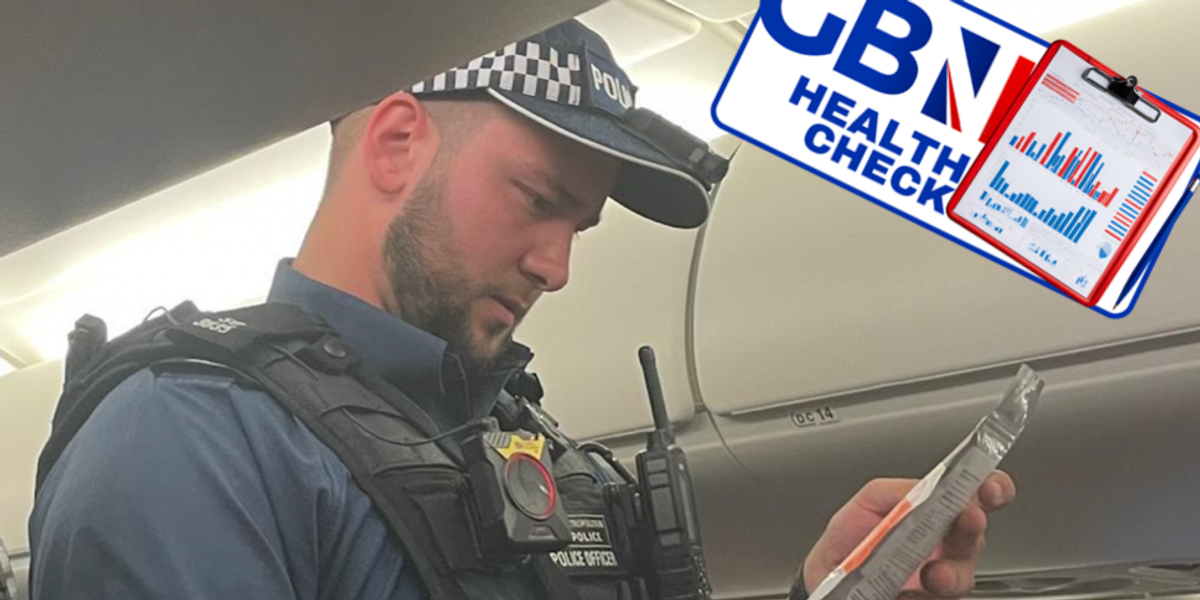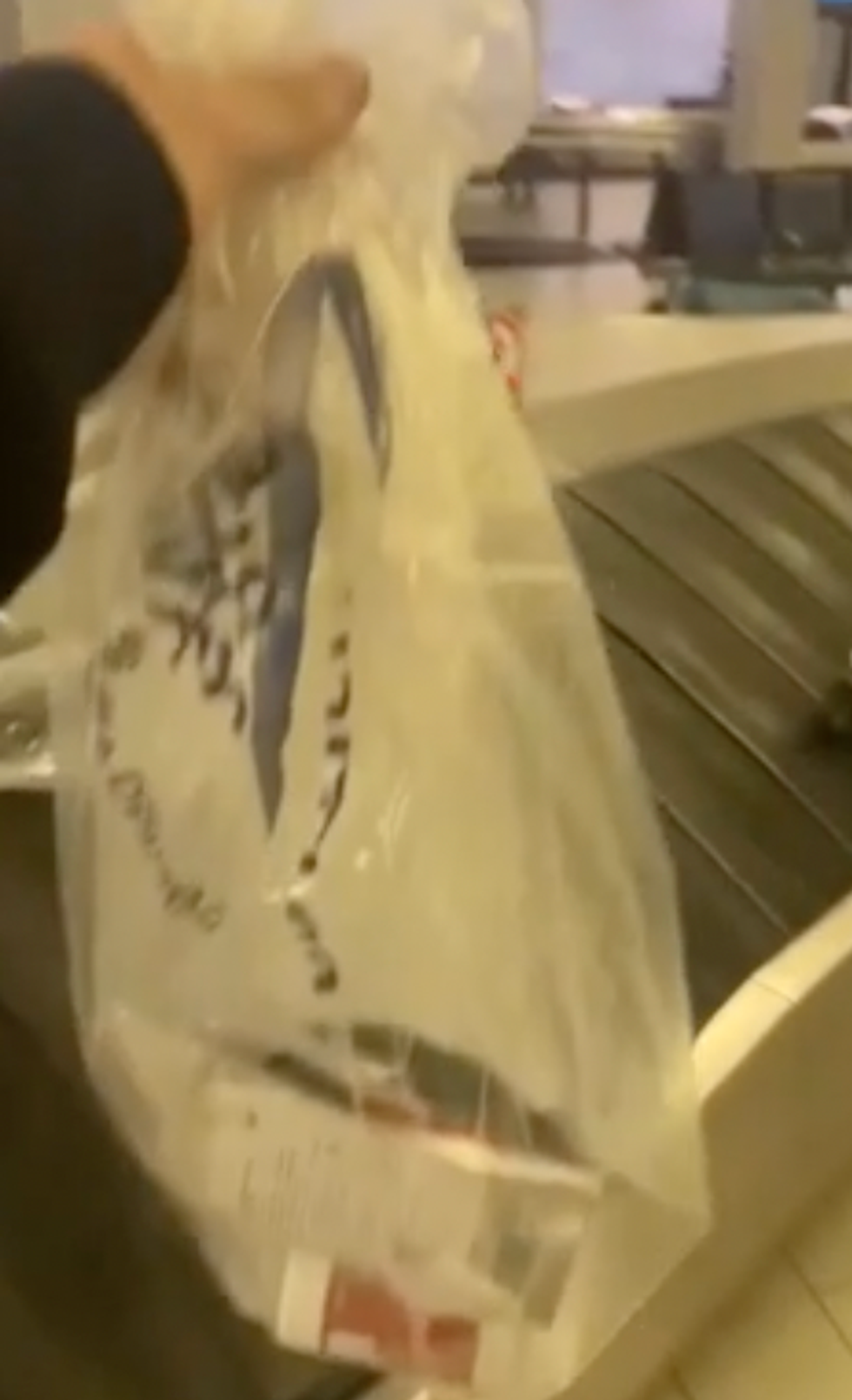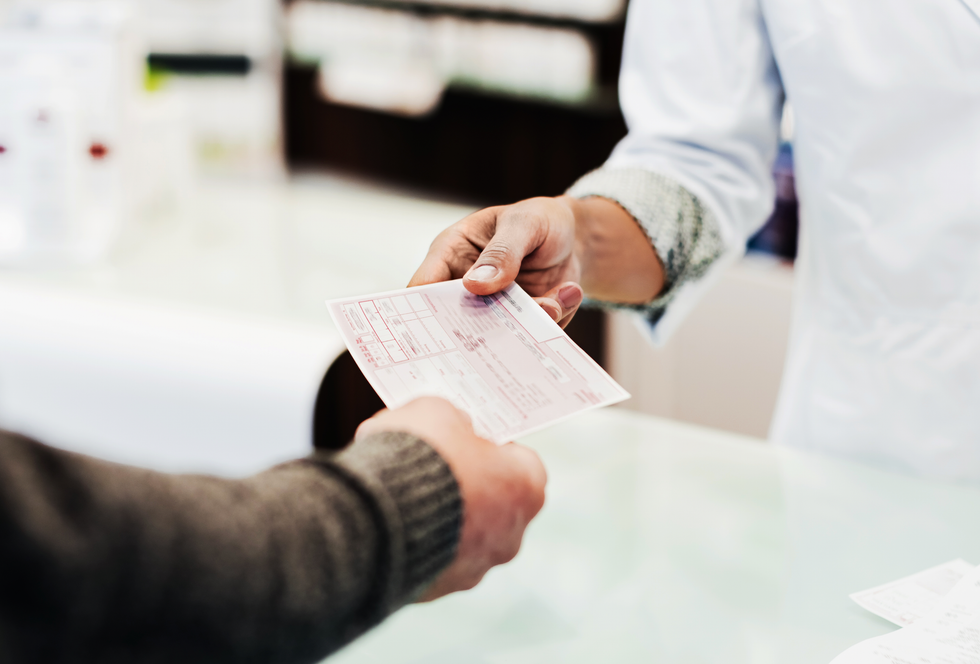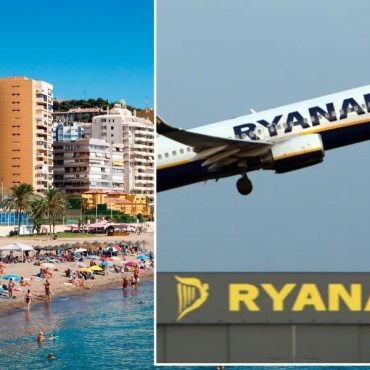Imagine going through the rigmarole of airport security, searching for your gate and boarding the plane only to be grounded for hours on end as armed police thumb your documents.
Five passengers on board an Amsterdam-bound British Airways flight in June were confronted with this nightmarish scenario after armed Metropolitan Police received intelligence that they had illegal substances on them.
This turned out to be a false alarm: the passengers were travelling with medically prescribed cannabis and had obtained travel letters and cleared security checks prior to boarding.
The almighty cock-up nonetheless resulted in patients being subjected to anxiety-inducing interrogations, having their medications confiscated and dumped on the airport carousel on the other end, GB News investigation can reveal.
It was not the best way to start a holiday. That being said, these passengers had a lucky escape.

Patients had their prescription medications dumped on an airport carousel
X
Britons travelling to less democratic countries have found themselves trapped in a Kafkaesque nightmare after their prescription medications fell foul of the law.
In one of the most extreme cases, Laura Plummer, from Hull, spent 13 months in an Egyptian jail for possession of the opioid painkiller tramadol.
Plummer initially faced the more serious charge of drug trafficking, which carries a sentence of up to 25 years in prison or even the death penalty, before her sentence was commuted.
With the holiday season in full swing, GB News takes a closer look at the dos and don’ts of travelling abroad with prescription medication.
According to pharmacist Thorrun Govind, the “best advice” is to ensure your medication is in the original packaging clearly labelled with the pharmacy you got it from and the required dosage.
This adds legitimacy to the product and demonstrates its legality, she tells GB News.
It’s always good to have a copy of your prescription too, the pharmacist says, adding: “I always advise patients to take a picture of something that just shows they’re on that medication as well as their medication because they could get separated from their medication in transit.”
This should be accompanied by:
- A printed-out summary of your medical condition, and the treatments you have received, including a list of your medications.
- The telephone number of your GP
You should also ask your doctor or pharmacist whether your medicine contains a controlled drug. If it does, check the rules for the country you’re going to with the embassy before you travel, according to the UK Government’s website.
It’s worth doing this well in advance as it could take time to get an appointment, Thorrun adds.

Ensure your medication is in the original packaging clearly labelled with the pharmacy you got it from
Getty Images
As the pharmacist points out, getting au fait with the rules of a country could throw up surprises. For example, some countries may require more stringent measures if you’re taking more than three months’ supply out of the country. Other drugs might be outright banned.
According to the NHS, the following countries have strict lists of medications that you are not allowed to bring in:
- India
- Turkey
- Pakistan
- United Arab Emirates
What are the riskier medications?
For Thorrun, opioids such as tramadol and codeine could land you in the danger zone, especially in the UAE, where it is listed as a narcotic substance.
Medicinal cannabis is also fraught with risks.
Although it is legal in the UK, travelling abroad isn’t always a “straightforward process”, warned Nabila Chaudhri, medical director at Alternaleaf.
As she explains, cannabis tends to have a higher “threshold” for legality in many countries. For example, Spain usually requires further documentation. France and Portugal tend to be quite laid back.
Nabila stresses the importance of contacting the embassy before travelling and getting a travel letter from your clinic, although this doesn’t guarantee a safe passage.
“Even if the embassy has granted you access, if police forces abroad are not educated on the legality of medical cannabis for travellers in their country, it can lead to more difficult and stressful situations for patients.,” she warned.
Other essential tips
Providing you are sticking within the required limits, Thorrun advises packing more medication than you need in case you face travel delays.
She also recommends going through your travel insurance with a fine-tooth comb to ensure you’re fully covered.
Finally, think about how your meds are going to be stored in transit.
Thorrun explained: “If you are travelling with things like oxygen, insulin or injectable medicines, it’s worth contacting the airline in advance. Certain products require specialist arrangements, such as being kept at a particular temperature.”













Post comments (0)